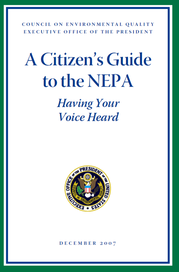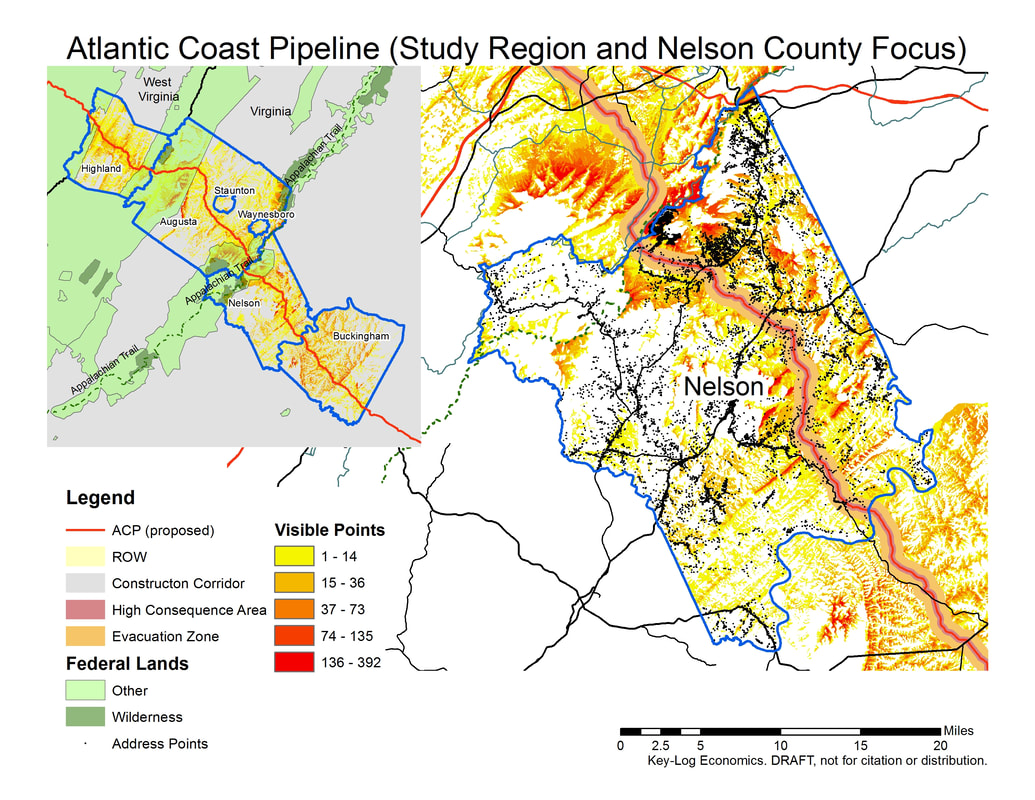|
On November 6th, the D.C. Circuit of Appeals granted a temporary stay on the construction of the Atlantic Sunrise Pipeline on behalf of groups arguing that the pipeline did not go through a stringent enough environmental review that considers all environmental costs. The court lifted the stay two days later on the grounds that the opponents of the pipeline had not satisfied requirements for a stay pending court review. Despite the current status, the case illustrates persistent and fundamental flaws in how the Federal Energy Regulatory Commission (FERC) assesses proposed pipelines.
FERC talks a good balancing-benefits-and-costs game in its pipeline certification policy, but in practice, the regulators simply parrot pipeline applicants’ flawed claims about their projects’ promised benefits while greatly discounting or ignoring costs entirely. The predictable and economically wasteful result is growing overcapacity for natural gas transmission and significant, uncompensated costs borne by nearby landowners, diverse businesses, and the public at large. As we show in our report, Atlantic Sunrise Project: FERC’s Approval Based on an Incomplete Picture of Economic Impacts, and as we have found in several other cases, FERC fails to account for the costs that pipeline construction and operation impose on people other than the pipeline company and its customers--what economists know as “external costs” or “externalities”. FERC’s policy states that the interests of communities near proposed pipelines should be considered. However, in practice, the only members of those communities who count in FERC’s eyes are owners of those properties that the pipeline would cross directly. Neighbors facing no less risk or inconvenience, recreation and tourism companies likely to lose business during and after pipeline construction, and whole communities that the pipeline makes less attractive as a location in which to live and work simply do not show up in FERC’s analysis. This is to say nothing of the impacts of the added greenhouse gas emissions that the pipelines will directly and indirectly cause. Things are not much better on the benefits side. FERC relies exclusively on applicants’ own estimates of their projects’ benefits, and those estimates are routinely based on the inappropriate use of models known to be inadequate for estimating short-term economic effects and inappropriate for estimating effects in the longer term. In a partial acknowledgment of these problems, then outgoing FERC Commissioner Norman Bay issued a statement to the effect that the current pipeline certification process is inadequate. He recommended that the Commission both rethink how need for pipelines is established and improve the way it conducts environmental reviews, with special importance given to a more comprehensive environmental analysis. More recently, the Analysis Group evaluated FERC’s practices and concludes that FERC should reevaluate their certification policies to incorporate the extremely dynamic changes the natural gas industry has encountered since 1999, the last time FERC changed its policy statement. Key-Log Economics has been working with grassroots citizens groups and established conservation organizations to provide solid, strategically important research into the economics of natural gas transmission. We would hope that FERC will fix the flaws in its broken system and establish both the capacity for and the habit of evaluating the full economic costs of proposed pipelines along with realistic assessments of their benefits. Until that happens, it will continue to fall to outside groups to develop that information and bring it to debates over pipeline approval. To learn more about the work we are doing click here.
3 Comments
Winter Solstice, 1992 – my first day on the job at The Wilderness Society, and Pat, one of my new colleagues, takes me around to meet the handful of staff actually working four days before Christmas. One of these was, of course, our counselor, Senator Gaylord Nelson, Founder of Earth Day, hero of the environmental community, a man who was in the Senate when I was in diapers. I was a bit intimidated. We step into the Senator’s office for an introduction that goes like this:
Pat: “Gaylord, I’d like you to meet our new economist, Spen-” The Senator (interrupting): “What the hell do we need another economist for? Aren’t they the kind who lie awake at night wondering whether what happens in the real world could work in theory? I heard that an economist is someone who knows the price of everything and the value of nothing!” Well, Gaylord, your ribbing had a kernel of truth to it: too many economists and other folks don't know the value of the most valuable things. They don't see beyond prices of energy and other commodities, beyond the return on selling an undeveloped parcel to developers, or how many jobs could be had in the process of converting natural systems into sellable stuff. But quite a few economists do know that the value of nature transcends prices and that without healthy of natural systems, there’s not much basis for a truly wealthy economic system. As Senator Nelson also said, The wealth of the nation is its air, water, soil, forests, minerals, rivers, lakes, oceans, scenic beauty, wildlife habitats and biodiversity…. In short, that’s all there is. That’s the whole economy. I founded Key-Log Economics to continue the work of putting solid information behind this idea. It’s a privilege to help our clients make economic case for their conservation efforts, and a joy to work with a team of colleagues dedicated to the idea that doing right for the economy means doing right by nature. Happy Earth Day! -Spencer Phillips Gas industry study says pipelines do not have an effect on prices, but the study is flawed. The Interstate Natural Gas Association of America (INGAA) Foundation, Inc., released another report on the impacts of pipelines on property values and property insurability. Like a previous report using the same methods, the report claims that pipelines have no measurable impact on property values of homes of any type, regardless of the age or size of the transmission line. The report quantitatively analyzes two pipelines in Ohio, one each in Virginia, New Jersey, Pennsylvania, and Mississippi. The authors attempt to compare prices for properties “adjacent to” a pipeline with the price of properties “off” the pipeline. For most of the properties, the authors fail to distinguish the fact that between 50% and 100% of the “off” properties analyzed are in fact located in the evacuation zone of the pipeline, which would mean the study is not truly distinguishing between properties affected by the pipeline and those that are not. Any econometric evaluation of differences in market prices requires comparing observed prices of things that are different in some way. However, the studies compare similar properties and, not surprisingly, find that they have similar prices. Their conclusions are neither interesting nor relevant to the important question of how large an economic effect the proposed pipeline would have.
In addition, the INGAA study suffers from a more serious flaw in that the authors do not state whether or not the purchasers of any of the properties analyzed were aware of the properties’ proximity to a pipeline. If buyers in the study were unaware they were buying a property near a natural gas pipeline, then it is not possible to legitimately conclude that their offer prices reflect the presence or absence of a pipeline. For Key-Log Economics’ recent study, we worked from solid estimates of differences in property value where buyers DID know what they were buying into and where the properties compared were, in fact, different. We estimate that the ACP would cost property owners between $55.8 and $80.2 million in property value for just Highland, Augusta, Nelson, and Buckingham Counties. That is just a fraction of the total cost the ACP would impose on local people and communities. Counting lost recreational, aesthetic, water quality and other natural benefits and lost development associated with recreation, tourism and in-migration, and the tally tops $140 million during construction and $109 million per year forever after that. Click here to see our letter in the Charlottesville Daily Progress Click here to read more on our review of the INGAA Foundation Report, “Pipeline Impact to Property Value and Property Insurability” Click here to read more about the Economics of the Atlantic Coast Pipeline.  Under the National Environmental Policy Act (NEPA), the Federal Energy Regulatory Commission (FERC) is required to obtain input from the public in order to "scope" an environmental impact analysis of the proposed Atlantic Coast Pipeline. FERC has received thousands of "scoping comments" through its website, the mail, and at in-person scoping meetings held in March and April. These comments include excellent information about the economic and other effects that citizens, scientific experts, and various stakeholders expect to see or are already seeing as a result of the proposed ACP. For two reasons, Key-Log Economics recruited "citizen scientists" to help with a crowd-sourced effort to review and summarize as many of those comment letters as possible. The first reason is to provide solid, objective data about those issues of concern to the people and communities through which the pipeline would pass. Combined with our review of existing economic studies and with our analysis of primary and secondary data on property values, ecosystem service flows, and economic development trends, data from the comment letters will help us provide complete, grounded information about economic impacts to FERC. The second reason is that later on in the NEPA process, FERC must analyze and report on in a draft "Environmental Impact Statement" relevant issues raised at the scoping phase. Having an independent review of what other citizens have said during the scoping phase will help ensure that FERC’s legal obligations to consider the full range of environmental effects of the proposed pipeline are fully met. Like other citizen-science efforts, such as the Christmas Bird Count, volunteers didn't have to be experts to volunteer for this effort. All it took was a little time and an internet connection, since they received comment letters to review via email, and completed an online form to capture key information from the comment letter. Huge thanks to all of the volunteers who joined this pioneering crowd-sourcing effort! The volunteers worked hard to analyze more than 2,800 comments! The full analysis of this citizen input can be found here. A summary slides version can be found here. Read more about the ACP proposal and our analysis of its economic effects here.
|
Details
Archives
November 2017
|
|
Key-Log Economics & Key-Log Economics Việt Nam
+1 202.556.1269 +84.098.991.4350 [email protected] Charlottesville | San Diego | Hanoi |
|




 RSS Feed
RSS Feed